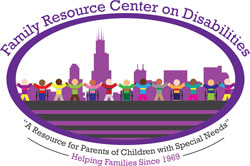Concerns About Baby or Toddler Development?
If you’re concerned about a baby or toddler’s development
It’s not uncommon for parents and family members to become concerned when their beautiful baby or growing toddler doesn’t seem to be developing according to the normal schedule of “baby” milestones.
“He hasn’t rolled over yet.”
“The little girl next door is already sitting up on her own!”
“She should be saying a few words by now.”
Sound familiar? While it’s true that children develop differently, at their own pace, and that the range of what’s “normal” development is quite broad, it’s hard not to worry and wonder.
What to do
If you think that your child is not developing at the same pace or in the same way as most children his or her age, it is often a good idea to talk first to your child’s pediatrician. Explain your concerns. Tell the doctor what you have observed with your child. Your child may have a disability or a developmental delay, or he or she may be at risk of having a disability or delay.
You can also get in touch with your community’s early intervention program, and ask to have your little one evaluated to see if he or she has a developmental delay or disability. This evaluation is free of charge, won’t hurt your child, and looks at his or her basic skills. Based on that evaluation, your child may be eligible for early intervention services, which will be designed to address your child’s special needs or delays.
How to get in touch with your community’s early intervention program
There are several ways to connect with the EI program in your community. Try any of these suggestions:
- Contact the Pediatrics branch in a local hospital and ask where you should call to find out about early intervention services in your area.
- Ask your pediatrician for a referral to the local early intervention system.
- Visit Department of Human Services Bureau of Early Intervention Phone: 217-782-0516 Fax: (217) 524-6248
Ann Freiburg, Acting Part C Coordinator
Email: ann.freiburg@illinois.gov
Website: http://www.dhs.state.il.us/page.aspx?item=32009
ReferPhone: (800) 323-4769
ReferWebsite: http://www.dhs.state.il.us/page.aspx?module=12&OfficeType=4&County
What to say to the early intervention contact person
Explain that you are concerned about your child’s development. Say that you think your child may need early intervention services. Explain that you would like to have your child evaluated under Part C of IDEA.
Referral
Write down any information the contact person gives you. You will probably be referred to either your community’s early intervention program or to what is known as Child Find. Child Find operates in every state to identify babies and toddlers who need early intervention services because of developmental delays or disability. You can use the Parent’s Record-Keeping Worksheet to keep track of this important information. In fact, in general, it’s a good idea to write down the names and phone numbers of everyone you talk to as you move through the early intervention process.
Information taken from the Center of Parent Information and Resources Updated, March 2014 A legacy resource from NICHCY
